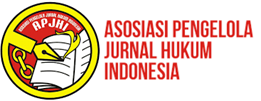Corruption Crimes in Indonesia: A Comparative Study
DOI:
https://doi.org/10.70193/ijlsh.v2i1.224Abstract
Corruption is an act of deviation that is contrary to the principle of justice (al `adalah). Corruption with all its negative impacts produces various distortions to the life of the state and society can be categorized including fasad actions and cursed by Allah SWT. This research uses a normative approach. The results of this study indicate that in the aspect of Islamic law, there are several types of corruption regulated in Islamic law such as Risywah, Ghulul, Betrayal of trust, Ghasab and Al-Maks or acts of illegal levies. The type of punishment that can be applied to the perpetrators of corruption is ta'zir punishment where the type of punishment is determined by the government (ulil amri) because the sanctions are not explicitly mentioned in the Qur'an and Sunnah. However, in ta'zir punishment, corruptors can be sentenced to death, if the government wants it according to the negative impact of the crime committed.
Downloads
References
Alatas, S. H. (1990). Rasuah Sifat, Sebab dan Fungsi. Dewan Bahasa dan Pustaka.
Amarandei, C. M. (2018). Corruption and Foreign Direct Investment. Evidence From Central and Eastern European. CES, V(3), 311–322.
Arafa, M. A. (2012). Corruption and Bribery in Islamic Law: Are Islamic Ideals Being Met in Practice? Annual Survey of International & Comparative Law, 18(1), 171–242.
Arafa, M. A. (2018). White-Collar Crimes, Corruption and Bribery in Islamic Criminal Law : Lacuna and Conceivable Paths. Rule of Law and Anti-Corruption Journal, 3, 1–10.
Asy-Syaukani, A. I. (2002). Ringkasan Nailul Authar. Pustaka Azzam.
Aziz, M. W. (2016). Corruption Sanctions in the Perspective of Fiqh Jinayat. International Journal Ihya’ ’Ulum Al-Din, 18(2), 12. https://doi.org/10.21580/ihya.17.2.1735, pp. 159-179.
Bahri, S. (2015). Korupsi Dalam Kajian Hukum Islam. Kanun: Jurnal Ilmu Hukum, 67(XVII), 603–614.
Christiani, T. A. (2016). Normative and Empirical Research Methods: Their Usefulness and Relevance in the Study of Law as an Object. Procedia-Social and Behavioral Sciences, 219, 201–207. https://doi.org/http://dx.doi.org/10.1016/j.sbspro.2016.05.006
Cuervo-Cazurra, A. (2006). Who Cares about Corruption? Journal of International Business Studies, 37(6), 807–822.
Dewan Bahasa dan Pustaka. (2002). Kamus Dewan (3rd ed.). Dewan Bahasa dan Pustaka.
Grigorius, E. S. (2021). Penerapan Hukuman Mati Bagi Pelaku Kejahatan Korupsi Dana Bantuan Sosial. Jurnal Legslatif, 5(1), 16–25.
Hamzah, A. (1986). Korupsi di Indonesia Masalah dan Pencegahannya. Gramedia.
Indonesia Corruption Watch. (2018a). Catatan Pemantauan Perkara Korupsi Yang Divonis oleh Pengadilan Selama 2017, Vonis Pengadilan Untungkan Koruptor. ICW Press.
Indonesia Corruption Watch. (2018b). Tren Penindakan Kasus Korupsi Tahun 2017. ICW Press.
Marpaung, Z. A. (2019). Kebijakan Hukuman Mati Bagi Pelaku Tindak Pidana Korupsi dalam Perspektif Hukum Pidana Islam. Jurnal Ilmiah Advokasi, 7(1), 40.
Mubaraq, M. H. (2022). Corruption from the Perspective of Islamic Law. Journal of Legal and Cultural Analytics (JLCA), 1(3), 183–190.
Mukti, F. (2010). Dualisme Penelitian Hukum Normatif dan Empiris. PT.Pustaka Pelajar.
Munawwir, A. W. (1984). Kamus Arab-Indonesia. Unit Pengadaan Buku-buku Ilmiah Keagamaan Pondok Pesantren Al Munawwir.
Rahman, G. (2019). Asas Pembuktian Terbalik Dalam Tindak Pidana Korupsi (Perspektif Hukum Pidana Indonesia Dan Hukum Pidana Islam). Tahkim: Jurnal Hukum Dan Syariah, XV(2), 235–245.
Sabiq, S. (1977). Fiqh As Sunnah (3rd ed.). Dara al Fikr.
Syihab, M. A., & Hatta, M. (2022). Punishment Weighting for Criminal Acts of Corruption in Indonesia. Sasi, 28(2), 307–322.
Transparency International. (2022). Corruption Perceptions Index. Www.Transparency.Org. https://www.transparency.org/en/cpi/2021?gclid=Cj0KCQjw7KqZBhCBARIsAI-fTKLefjuJmRVeAFRWF4S8jqDocWKrU_WSsaUwUgjj48bbhR3_4KLek08aAs4bEALw_wcB
Yunus, N. R. (2021). Corruption as an Extra-Ordinary Crime: Elements and Eradication Efforts in Indonesia. Journal of Creativity Students, 6(2), 23–35.
Downloads
Published
How to Cite
Issue
Section
License
Copyright (c) 2025 International Journal of Law, Social Science, and Humanities

This work is licensed under a Creative Commons Attribution 4.0 International License.














